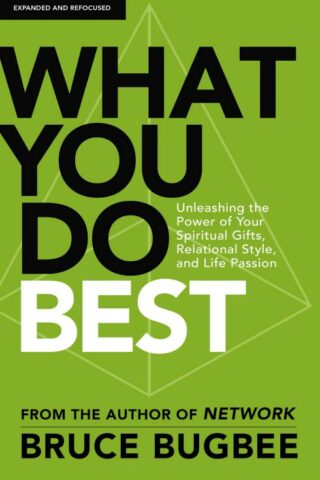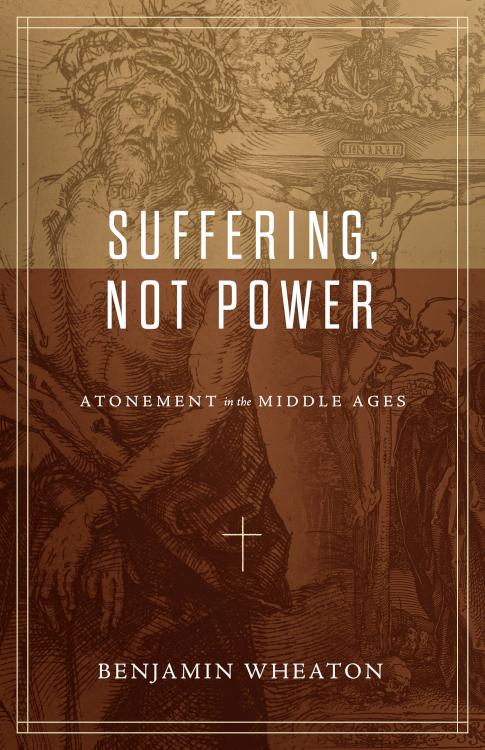Suffering Not Power
$26.99
Overturning a popular view of the atonement
Was Christ’s death a victory over death or a substitution for sin? Many today follow Gustav Aulen’s Christus Victor view, which portrays Christ’s death as primarily a ransom paid to the powers of evil and which, according to Aulen, reflected the beliefs of the early church. Aulen held that this ransom theory view dominated until Anselm reframed atonement as satisfaction and the Reformers reframed it as penal substitution.
In Suffering, Not Power, Benjamin Wheaton challenges this common narrative that Christ’s work of atonement was reframed by Anselm, showing that sacrificial and substitutionary language was common well before Anselm’s Cur Deus Homo. Wheaton displays this through a careful analysis of three medieval theologians whose writings on the atonement are commonly overlooked: Caesarius of Arles, Haimo of Auxerre, and Dante Alighieri. These figures come from different times and contexts and wrote in different genres, but each spoke of Christ’s death as a sacrifice of expiation and propitiation made by God to God.
Let history speak for itself, read the evidence, and reconsider the church’s belief in Christ’s substitutionary death for sinners.
in stock within 3-5 days of online purchase
SKU (ISBN): 9781683595991
ISBN10: 1683595998
Benjamin Wheaton
Binding: Trade Paper
Published: June 2022
Publisher: Lexham Press/Kirkdale Press
Related products
-
Knowledge Of The Holy
$15.99Informative and inspiring, The Knowledge of the Holy illuminates God’s attributes–from wisdom, to grace, to mercy–and shows through prayerful and discussion, how we can more fully recognize and appreciate each of these divine aspects. This book will be treasured by anyone committed to the Christian faith. It bears eloquent witness to God’s majesty and shows us new ways to experience and understand the wonder and the power of God’s spirit in our daily lives.
Add to cart1 in stock (additional units can be purchased)
-
On Earth As In Heaven
$29.99Today’s leading Bible scholar, Anglican bishop, and acclaimed author N. T. Wright returns with a collection of pastoral excerpts, carefully curated from his widely celebrated books, that will inspire those wanting to cultivate a life “on earth as it is in heaven.”
Modern pastors and their flocks have long considered N. T. Wright a role model for being a thoughtful Christian in today’s world. His bestselling books, including Simply Christian, Surprised by Hope, Simply Jesus, and After You Believe, have guided Christians in their belief and practice of the faith. Now, Christians can rely on his wisdom to guide them through each day of their lives with this thoughtful book of daily meditations, featuring short selections from his classic works.
With reflections on themes such as faith, mission, character, and God’s work in the world, these daily meditations will invigorate and uplift Christians in their search to live their faith authentically and biblically in today’s world.
Add to cart2 in stock
-
Mothers And Daughters Of The Bible Speak
$26.99God always keeps His promises, but not always in the way we expect….
“Have faith” is a phrase we hear all the time. But what does it actually look like to live it out? In The Mothers and Daughters of the Bible Speak, Shannon Bream examines the lives of biblical women to see how God’s plans can turn our worlds upside down. She tells the story of Jochebed, a mother who took enormous risks to protect her son, Moses, from Pharaoh. Could Jochebed have imagined that God’s actual design for her son involved flight into exile and danger? And yet this was all part of the master plan to deliver Israel from slavery. Another biblical mother, Rebekah, made terrible choices in an attempt to ensure her son’s place in history. And a daughter, Michal, struggled to keep her faithless father, Saul, from sin, while battling pride in herself.
Through these stories, Shannon explains the intimate connection between faith and family–and how God’s unexpected agenda can redefine the way we think about family. Not all of these mothers and daughters in the Bible were paragons of virtue. Like us, they were human beings who faltered and struggled to do their best. While some heard God’s voice, others chose their own paths. Through the lens of their imperfections, we can see how God used their stories to bring about His divine plans. He’s still doing the same work in our lives today.
The Mothers and Daughters of the Bible Speak shows that faith is more often a twisting road than a straight line. Yet, as the stories of biblical families attest, at the end of these journeys lies greater peace and joy than we could ever imagine.
Add to cart4 in stock
-
Drawing Pad : Available From Anchor
$4.99Games and Toys
Additional Info
This generously sized drawing pad provides a clean sheet for every creative whim. Premium white bond paper is ideal for pencils, crayons, markers, chalk, watercolor or poster paints.Add to cartin stock within 3-5 days of online purchase












Reviews
There are no reviews yet.